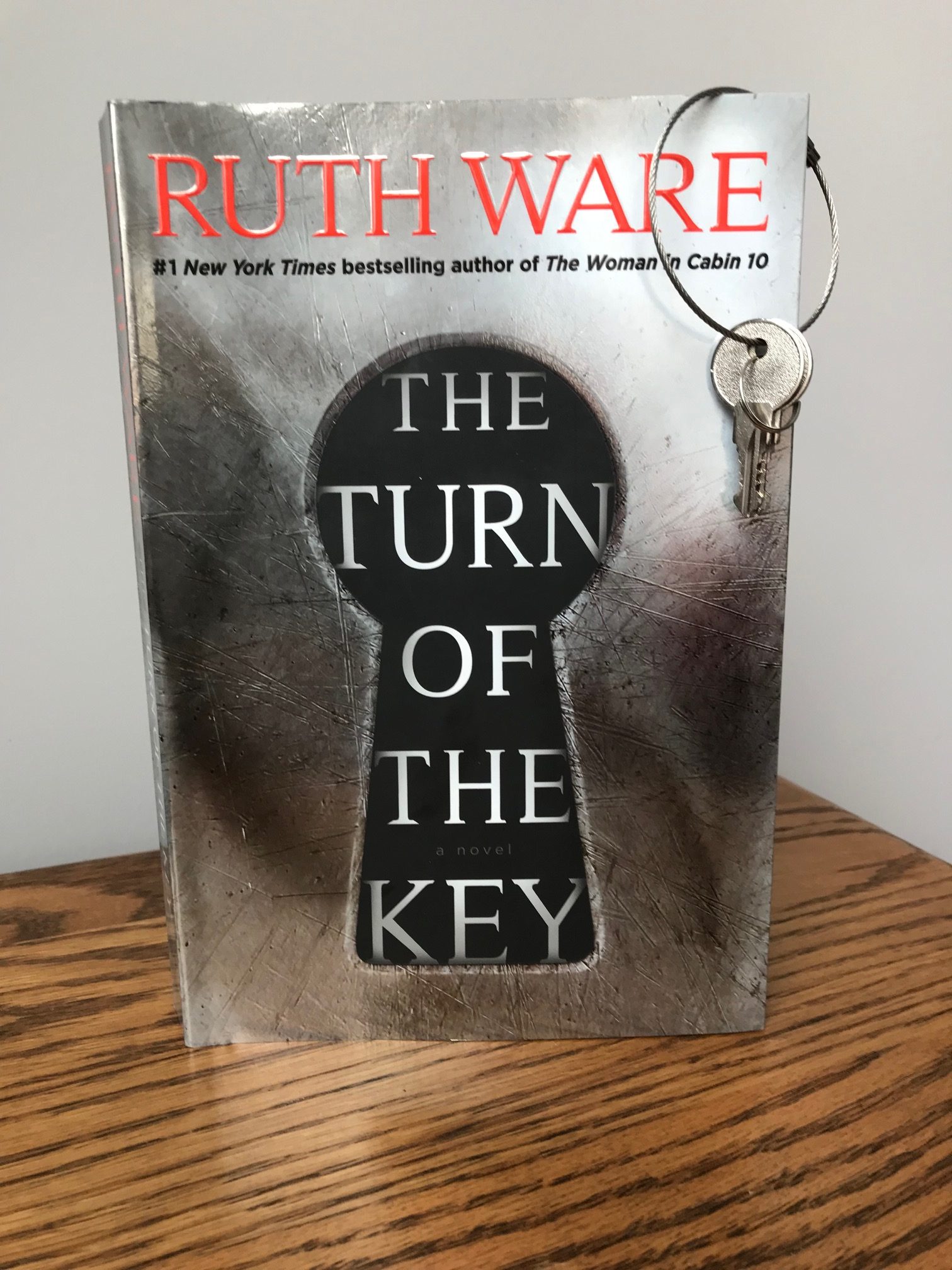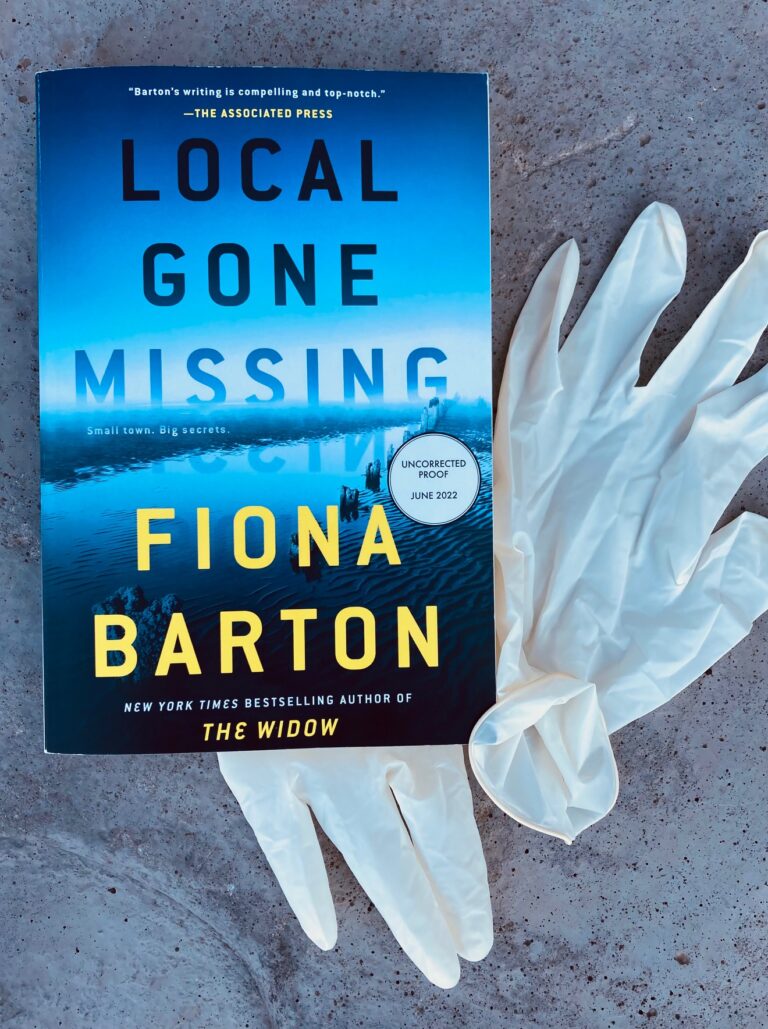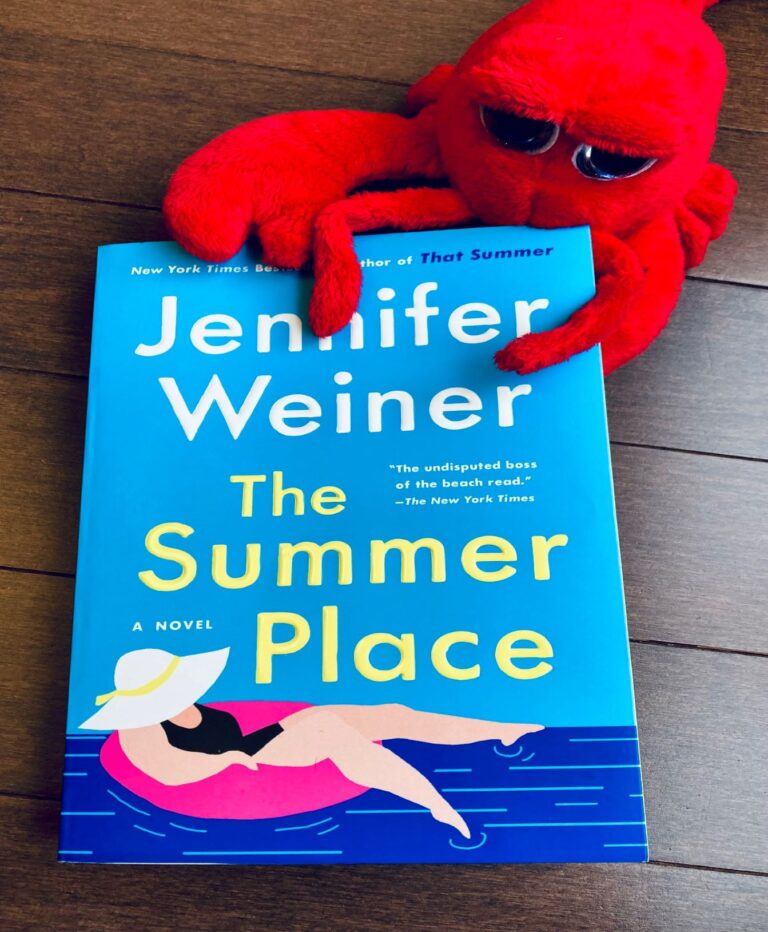Book Review: The Turn of the Key by Ruth Ware

My faithful readers will know all too well how much I love a Ruth Ware book. I’ve had my minor complaints about them over the years, but it’s never enough to put me off reading her. I still get excited each and every time I hear she’s written another, and thank god she’s productive because we’ve got the fifth release from her to now enjoy: The Turn of the Key.
For those of you who enjoyed her last book, The Death of Mrs. Westaway, Ware has returned to the gothic setting in an equally creepy story about a young woman named Rowan Caine, fresh into her nanny position for the Elincourts, a wealthy family living in a secluded and upscale ‘smart home’ in the Scottish highlands. The job seems ideal at the outset (don’t they all?), as the pay is outrageously good, her room and bathroom are gorgeous and the children seem tolerable, not to mention the attractive groundskeeper and handyman Jack are a nice addition to the package. But shortly after arrival, strange things begin marring this ideal facade, including random doorbell rings in the middle of the night, creepy doll head appearances and the discovery of past nannies fleeing after only a few days on the job. For those who enjoy a good haunted house plot line, you’ll be pleased with the creep factor of this narrative.

Ware’s books tend to feature similar protagonists; young women struggling to get a foot up, whether it be in their career, their finances, or their social life. They typically find themselves in a somewhat dangerous, isolated setting for the majority of the story, and then things get progressively worse as the days pass. I don’t personally have a problem with this repetition, I find her books incredibly readable, and the characters, although similar, are all sympathetic, even when they don’t seem that way at the outset. I’ll hazard a guess that the majority of Ware’s readers are female simply because her male characters tend to take a backseat (which again, I’m totally fine with) but I do think it’s important to point this out in my reviews. Class divide also comes up quite often in her stories; people living below the poverty line tend to butt up against the extremely wealthy, but this adds to the tension in her novels rather than distract from them.

Sensitive readers should be aware of the fact that a child does die in this book, but it’s something you learn right at the outset so that’s not a spoiler. And even though I’m a parent and loathe reading books about children being hurt, I found this bearable and quickly dealt with, so it shouldn’t scare off potential fans. Some goodreads reviewers complained that the descriptions of childcare were tedious, but I didn’t notice this at all, probably because it’s simply my reality at the moment. In fact, these details made Rowan more realistic, and helped ground me in her life, so I found these scenes to be beneficial rather than boring.
The book itself is set up as a big long letter from Rowan to a potential attorney, in hopes he will take on her case to defend her name, as she’s been accused of this child’s murder. The truth of what happened is revealed in letters as well, which was a unique framing technique that tied the whole plot together nicely. It’s quite clear from the beginning that Rowan has secrets, but the depth and consequences of these secrets is what’s up for debate. Ware doesn’t fall too far down this trap however, the intensity of the narrative isn’t dependent on learning Rowan’s secrets, so as a reader, I was satisfied with the ending. The Turn of the Key is another great example of escapism at its best, and with Halloween just around the corner, this is the perfect season to read it in.





One thing I kept thinking that bother me/made me giggle is that there is no way they would let her have that much paper in prison, lol. If the entire book (except a bit at the end) is all a letter, what a ginormous letter it would be.
My mini review is written and set to publish next week (I think?). I love me some Imogen Church audio book narration. She does Scottish accents, various British accents, etc. and does them convincingly.
The one problem I had with The Turn of the Key is the same problem I’ve had in ever Ware book I’ve read — but I’ll save it for my review ;)
Hmm yes, I think I can anticipate the problem, but I look forward to reading nonetheless! And you’re totally right, quite a bit of suspension of disbelief when it comes to that bit about the super long letter haha
Glad you enjoyed this one more than I did! I’m afraid all the child-care stuff bored me and the idea of it being a 384-page letter simply strained my credulity past breaking point. But it would be a dull world if we all liked the same books… :D
very true!
Disgruntled: I hated the ending. She must have been an idiot to not realize that the Law would not imprison the sister, the actual description of the site suggests that the sister didn’t kill the older sister since that sister was found so far from the window that only an adult could throw her there. Therefore, the girl did not lose her footing on the roof after being pushed, but stumbled or slipped higher up on the roof: an accidental death. (why didn’t a detective look into this solution?) It’s definite that everybody believes that the nanny died in prison, otherwise the letter becomes extremely important. Furthermore, that family is now doomed. The sister will now blame herself for two deaths, the mother will blame herself for hiring a murderous nanny, and the family will self-destruct (if you actually bother to think about what would likely happen next). This book is only good for readers without that ability to see the likely consequences.
I agree the ending could use some work, but I loved the build-up of this one! I think that’s where Ware really shines, is the atmosphere
The atmosphere was good, but when three pages ruins a novel that size, something went very bad in the writing. To mess up the ending is to ruin the book. Ruth has said that she didn’t mean that the heroine died, but I cannot think of an alternative to Rachel’s death. If she were alive and exonerated, the discussion among the police about her discovered letters would have been whether to ask if she wanted them returned to her. The “it doesn’t matter” means, to me and other men, that she’s dead. I know she didn’t mean that, but she messed up. By the way, I’m a retired technical writer, and if nobody understood what I was trying to say, it was MY mistake, not theirs. Ruth made a big mistake.
I really was upset with the ending to this book! It was such a letdown to have read this whole book and then have no ending. It was like there should have been another chapter, but Ruth Ware just got tired or something. I have read 2 of her other books and enjoyed them, but I will not be reading any more after this.
Yes, these types of endings can be frustrating!
Spoiler Alert: After thinking about this, I have realized that Ellie did not kill her sister. Maddie did not scream when she fell and she did not put her arms in front of her head, otherwise she would have survived a fall from one-and-a-half floors. Both are instinctive, so she must have been unconscious when she fell. Given that she was trying to get into the attic window after Jack had done something to it to keep it secure from the wind, I think that she was only able to get the phone and necklace in and couldn’t get herself in. Therefore, she must have pulled on the attic window to break whatever Jack had done to it and once the screw or string failed, the window hit her hard in the head and then she twisted from the blow and fell face first without emitting a sound. So Jack accidently killed her. The jury wouldn’t buy Rachel’s story so she was sentenced to life imprisonment (the UK does not have capital punishment) and she was beaten to death in prison. The men at the end, one of them, by the way, is the narrator and we know the story from him reading the letters, believe she is dead (trust me, I’m male, and that language the men use meets this grim ending). This, of course, would result in the suicide of Ellie at some point, and Rhiannon likely will run away from home and have a bad ending. But Bill, the monster, would have embezzled the family’s wealth and left the country. He’s a psychopath, as Maddie turned out to be. So Ellie is now suicidal with a pathetically useless mother. It’s an ugly ending all around. And I don’t believe that Rachel suffered from Borderline Personality Disorder though I suspect Ruth may have inserted that into the story, I looked at it and the evidence didn’t work out.
a very detailed analysis-thank you!
I found out this year that prisons always open and read an inmate’s mail first and then decide whether to pass it on. They reserve the right to withhold incendiary, seditious writing, fighting instructions and all nude and revealing photos and drawings, even if it’s the inmate’s lover or legal mate. The police will be told of anything important. This is a letter from the wronged family to the criminal who wronged the family so it’s a red alert to the police. The police would have interviewed the sender and writer if needed for clarity. Therefore they know about Ellie’s confession and Maddie’s actions. Yet they didn’t release Rachel, since she had to hide her letters (when police drop the charges, the prisoner regains all rights again, including privacy, so Rachel could take anything out of the cell and not be searched). That means that the police don’t believe that Ellie killed Maddie since, as I said above, Maddie was unconscious. They might have figured that Rachel met Maddie coming in through the window, found out that Ellie thinks that she killed Maddie and therefore Rachel knocked Maddie unconscious and threw her out, expecting Ellie to take the blame. A life sentence for sure. Either that or this is all a hoax played by a wreaker on the other wreakers, hiding his failed attempt at a prison thriller, Rachel’s letter, along with two other letters, and it worked, convincing his fellow wreckers that they were holding a letter from a real person, not a fictional one. Either way, it’s a disappointing ending.
Yes all good points – Ware may not have assumed people would have that knowledge of inmates letters being monitored too.
I suspect that Ware wasn’t even aware that prisons read and censor prisoners’ mail. I’ve only learned that from one commenter on one of the many review sites I checked, so it’s not common knowledge, but google it and it’s true. If your lover/spouse were in prison in the Western world, you would not be able to send nude or even semi-nude photos: they forbid those. They also forbid anything telling people how to fight. I think Ruth became enamoured of her idea of Rachel holding Ellie’s secret and she missed learning what she really needed. Also, the beta readers (people who read your novel before you submit it to publishers) and the publisher’s editors also missed this, among other mistakes in that novel. She got fascinated with the letter format and bungled the novel so it reads in a way she wasn’t expecting or wanted. Still, what you publish is what’s there: every mistake you made becomes carved rock in the story. That’s why you give endings, so people won’t be so puzzled that they analyze the story to the point where they see more than the author did, much to the author’s embarrassment. It really ruined the story, but most people didn’t understand, including all those web and newspaper critics. Tells you how good their advice is.